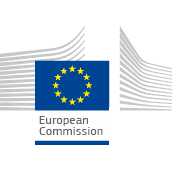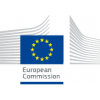
Call for proposals to promote the effective implementation of the principle of non-discrimination
Deadline: Apr 1, 2020
CALL EXPIRED
CALL EXPIRED
Capacity Building
Disadvantaged People
Environment
Gender Equality
Minority groups
Justice
IT
Education and Training
Erasmus+
Violence
Priorities and activities to be co-financed
1. Priorities
To tackle at least one of the following grounds for discrimination listed in Art. 19 of the Treaty on the Functioning of the European Union: racial or ethnic origin, religion or belief, disability, age or sexual orientation. Actions should aim to, in particular:
Priority 1. Promoting diversity management and inclusion at the workplace, both in the public and private sector.
This entails the increasing number of Diversity Charters by EU Member States, their signatories, and concrete actions that promote diversity and inclusion at the workplace with regard to the six grounds of discrimination or their intersectionality.
Indicative budget of € 500 000
Priority 2. Fighting against discrimination based on sexual orientation in society and promoting the equality of LGBTI people through the implementation of the LGBTI List of Actions.
Concrete and practical actions raising awareness for LGBTI equality in education, health and employment and/or to train professionals in relevant areas important for advancing equality of LGBTI people, in particular proposals focusing on transgender equality and on intersex equality.
Indicative budget € 1 000 000
Priority 3. Fighting against discrimination based on racial or ethnic origin and/or multiple discrimination.
The focus is to contribute to the enforcement and effective implementation of Union non-discrimination legislation (Racial Equality Directive 2000/43/EC), such as victims' interest representation, independent monitoring, early warning and reporting.
Applicants are encouraged to involve equality bodies in their projects and address the issues reflected in the Commission Recommendation on Standards for Equality bodies[1].
Indicative budget € 1 000 000
Priority 4. Strengthening the fight against anti-gypsyism and various forms of discrimination of Roma.
Focus shall be on discrimination in (access to) education, employment, health and housing, such as spatial and schooling segregation, forced evictions, as well as multiple discrimination (of Roma youth, women, children, etc.); supporting transnational cooperation on fighting discrimination and promoting inclusion of EU-mobile Roma; fighting antigypsyism by combatting stereotypes, mistrust and raising the general public’s awareness about Roma history (including recognition of the Roma Holocaust as part of truth and reconciliation processes and promoting the inclusion of Roma history into pedagogical materials for pupils in cooperation with relevant national authorities); promoting inclusive public services and cooperation with the private sector for creating ethnically diverse work environments and encouraging public institutions and compagnies to include Roma in their diversity workplans. Supporting capacity building of Roma and pro-Roma civil society active in the above mentioned areas.
Indicative budget € 1 000 000
Priority 5. Restricted to public authorities: promoting non-discrimination on the grounds of sex, racial or ethnic origin, religion or belief, disability, age or sexual orientation
This entails actions to prevent and combat discrimination on the ground, as well as initiatives aimed at empowering, supporting and protecting groups and individuals affected by forms of discrimination. It also aims at addressing underreporting and building trust between communities and public authorities. Actions may include capacity building of national, regional or local authorities, including equality bodies, enhancing coordination and cooperation to promote equal treatment, improve responses to discrimination, as well as ensuring better application and enforcement on the ground of EU policies and legislation in this field, in particular the Commission Recommendation C(2018) 3850 on standards for equality bodies and the 2013 Council Recommendation on Effective Roma Integretation Measures.
Indicative budget € 1 000 000
Priority 6. Restricted to public authorities: collecting equality data
To address common gaps and challenges in equality data across the EU, the European Commission Subgroup on Equality Data developed the guidelines on improving the collection and use of equality data (https://ec.europa.eu/info/policies/justice-and-fundamental-rights/combatting-discrimination/tackling-discrimination/network-experts-field-anti-discrimination_en) and the compendium of practices on equality data (https://fra.europa.eu/en/theme/racism-related-intolerances/racism-compendium-practices).
The guidelines describe a number of concrete institutional and operational steps that EU Member States can take to enhance the collection and use of equality data. They suggest how to improve the availability and quality of the data and how to promote their effective use in developing evidence-based equality and non-discrimination policies and monitoring their effective implementation.
Furthermore, the European Union Agency for Fundamental Rights has also published an online compendium of nearly 40 practices from 15 countries on the collection and use of equality data (https://fra.europa.eu/en/news/2019/better-data-better-equality).
The actions aim to develop a coordinated approach for collecting and using equality data, including consultation with relevant stakeholders and affected communities when designing and implementing data collection; to identify who is at risk of discrimination; to enhance awareness of the importance of such data.
Indicative budget € 500 000
Proposals on hate speech and hate crime are not funded under this call for proposals, since these topics are addressed in the call for proposals to prevent and combat racism, xenophobia, homophobia and other forms of intolerance.
2. Description of the activities
The call will fund projects focused on one or more among the following activities:
- capacity building, antidiscrimination training of professionals and support to victims of (multiple) discrimination;
- mutual learning, exchange of good practices, cooperation, including identifying best practices which may be transferable to other participating countries;
- dissemination and awareness raising (including activities combatting stereotypes against Roma, promoting the recognition of the Roma Holocaust, such as commemoration practices, promoting the inclusion of Roma history into the school curricula and pedagogical materials), social media or press campaigns; encourage public institutions and compagnies to include Roma in their diversity workplans.
- data collection, survey, monitoring and reporting implementation of non-discrimination legislation;
N.B.: activities supporting political parties regardless of their grounds or objectives shall not be funded.
Activities must take place in countries participating to the REC Programme to be eligible for funding.
3. Expected results
Priority 1. Promoting diversity management and inclusion
- increased number of Diversity charters and of companies affiliated to a charter;
- increased business case of diversity through strengthened links between the academic/research community and the business world;
- more inclusive workplaces and societies;
- increased European wide tools measuring diversity and inclusion at the workplace.
Priority 2. Fighting against discrimination based on sexual orientation
- list of actions by the Commission to advance LGBTI equality are being implemented;
- increased reporting of cases of discrimination based on sexual orientation;
- increased awareness of challenges of LGBTI equality.
Priority 3. Fighting against discrimination based on racial and/or ethnic origin
- equal opportunities for people of all racial and/or ethnic origins is promoted;
- increased knowledge of EU and national non-discrimination legislation as well as administrative practices in the non-discrimination field, including practices and policies covering multiple discrimination;
- increased rights-awareness, protection and interest representation of victims of discrimination based on racial or ethnic origin;
- more effective implementation and enforcement of the legislation on non-discrimination as well as improved independent monitoring and reporting.
Priority 4. Strengthening the fight against discrimination of Roma
- decreased discrimination and anti-gypsyism;
- more effective implementation of the legislation on non-discrimination;
- more positive narrative and tolerant perception of Roma in the general public;
- increased contribution from national, regional or local activities to the development of policies fighting antigypsyism and discrimination;
- enhanced Roma participation in design, implementation and monitoring of policies.
Priority 5. Restricted to public authorities: promoting non-discrimination
- enhanced citizens’ awareness of their right to equal treatment without discrimination;
- improved support to victims;
- enhanced cooperation promoting equal treatment/improved response to discrimination;
- decreased discrimination on the grounds of sex, racial or ethnic origin, religion or belief, disability, age or sexual orientation.
Priority 6. Restricted to public authorities: collecting equality data
- identification of main gaps and shortcomings in equality data collection;
- enhanced quality of equality data collection and improved methodological approach (e.g. definition and comparability of equality data) as well as the availability and accessibility of equality data;
- better inter-institutional cooperation in collecting equality data.
[1]C (2018) 3850
Public link: Only for registered users
Get Access to the 1st Network for European Cooperation
Log In
or
Create an account
to see this content
1
Up2Europe Experts
on This Call
Expert - Project Development & EU Funding Consultant in participatory processes
MY SUCCESSFUL EXPERIENCES IN COMMUNITY GRANTS


 EC - Citizens, Equality, Rights and Values Programme (CERV)
EC - Citizens, Equality, Rights and Values Programme (CERV)
Please Log In to See This Section